Press TV’s exclusive interview with IAEA chief Rafael Grossi: Full text
What you will read below is the full version of an exclusive interview Press TV had with Director General of the International Atomic Energy Agency (IAEA), Rafael Grossi, on Face To Face program on November 23, 2021.
Press TV: Hello, and welcome to another Face To Face. I'm Marzieh Hashemi. We appreciate you being with us today. And we're happy to have the Director General of the International Atomic agency (IAEA) with us here today, Mr. Rafael Grossi. Thanks so much for being with us.
Grossi: My pleasure. My pleasure to be here.
Press TV: Well, let's start off with…Tell us about the reason for your trip. Let's start off from there.
Grossi: Well, in reality, I would say the relation between the agency and Iran is a permanent one is a continuous process. But in particular, in the case of today, back in September, when I made another visit, we agreed, among other things, that apart from a number of technical issues that we were discussing there, we would have soon meetings at a political level to consolidate the relations and to discuss a number of issues among the agency and Iran, of course, here, you have a new government and since the new government took office, I had not had opportunity to meet with the new authorities, in particular, the foreign minister. So that was agreed back then. And then well, it was materialized, though. So we've been having a long day of discussions, talks, negotiations.
Press TV: And how have the meetings gone today so far?
Grossi: Very constructively, I would say. We have an important number of issues we need to discuss at the technical level and we have been dealing with those.
Press TV: Now, in the past, there were 13 times that the agency had basically confirmed that Iran was adhering to its commitments under the JCPOA, even after the US left the agreement. So with this in mind, what will the agency's approach towards the anti-JCPOA actions by Washington be?
Grossi: Well, in what happened, as you enumerated just now, was that there were a number of reports, the United States previous government took a decision to withdraw from the JCPOA. And as Iran took also a number of decisions, reducing each compliance as well with the agreement, which put us all in a completely different situation as in the past.
Press TV: Let me just jump in here. Because with Iran, we it's about Iran, because the United States left the agreement and Iran did not respond by the way.
Grossi: It did not leave the agreement but it reduced and eventually eliminated all obligations in the nuclear chapter of the JCPOA…
Press TV: After two years, right? After two years.
Grossi: Yes, yes, but it did. So the issue is that with the new government in the United States, as you know, there was a reinvigorated process to try to revive, I can put it like this colloquially, the JCPOA, there have been a number of rounds of negotiations and other one announced for very soon. So as far as the agency is concerned, you know, the agency is not a party to the agreement, but is the guarantor, is the verifying institution of the agreement.
Press TV: So if you're the guarantor of this agreement, and the United States withdrew like that, was there anything that you could have done to try to prevent them from withdrawing? And also after they withdrew, were there any ramifications for the United States itself?
Grossi: Well, in terms of the commitments by the agency, the agency does not have or did not have competences in terms of a political decision of a country to remain or to withdraw from the agreement. So in that regard, what we continued to do was to verify the compliance or lack thereof, of the provisions of the nuclear aspects of the JCPOA. And this is what we continue to do.
Press TV: I mean, but in that process, that the United States withdrew, which you admit that, obviously, Iran has had to pay a major financial price, obviously, because of all the agreements and different things that have happened, and then, of course, the reinstatement of the sanctions. Do you think that there should be some ramifications and repercussions at all by the United States, from the United States for this?
Grossi: Well, the political repercussions of political decisions are not a matter for the head of an international organization to comment on. What we have is a very as you know, very specific technical mandate to verify the observance or not of certain measures, which in the case of the JCPOA, which is a very detailed agreement, had a number of categories that we had to look into, not what the United States or Germany or France or the UK or Iran had to do, in fact, with Iran the decisions it took, we never had a political stance on it. We simply continued to do our technical job.
Press TV: You have said before, as I said in the first question, are so that Iran has adhered to the NPT commitments. I want to talk about why is the agency has insisted that Iran goes beyond its commitments?
Grossi: Well, the agency has not insisted on that; it is the JCPOA that required or for a number of additional transparency and verification measures. And the Security Council of the United Nations and the parties to the JCPOA requested, mandated the agency to verify that will be the case.
Press TV: Right, that Iran went beyond its commitments, that it voluntarily adhered to additional protocols. So my question then would be why is the agency insistent on that part of it that Iran adheres to the Additional Protocol, when we have the entity like the United States that totally left it, and many of the aspects, of course, at the JCPOA basically became null and void because the United States left and then the Europeans really did not abide by their side of the commitments especially from financial transactions if we look at that perspective.
Grossi: You know, what you mean is that I should be taking political stances and we don't, neither for Iran or against Iran or for the United States or against the United States, we simply observe and inform what is going on otherwise, it would be impossible to do our job as you can understand.
Press TV: So, OK, if that is the case, if the agency doesn't take any political stance, I mean, we'll look at various measures that has been taken, for example, by Israel, we look at the various sabotage measures, we look at the nuclear facility in Karaj, and of course, nuclear scientists that the Israelis have been responsible for. Shouldn't the agency take a stance on basically condemning the situation that causes so much terror basically, if we look at what the Israelis have done to Iran's nuclear facilities, if we look at nuclear scientists, obviously, have also been assassinated. Should the agency not condemn that in order to guarantee the integrity of the agency, one, and also to help those individual states that are committed to this adhere to it.
Grossi: Yes, I would say the following. In terms of violence in general, the agency, myself, as head of the agency, and the agency in any UN-affiliated organization, as you can understand, would always condemn violence. We do not conduct investigations or allocate responsibilities again, on who may have done, whatever. What I can tell you and I have been very clear about this is that the use of violence is absolutely condemnable. With the exception of the cases provided for the United Nations Charter.
Press TV: One of the main problems that Iran has had with the agency is that confidential information being leaked. Can you talk about that? What can the agency do to prevent that from happening?
Grossi: Well, the agency, of course, protects all the information it receives. And it has, and if there are people leaking information, the agency has absolutely no capacity to control this, as you can imagine.
Press TV: But I mean, when then Iran is giving confidential information, for example, about nuclear sites, about nuclear scientists. And then we see different situations happening, attacks, whether we're talking about cyber attacks or other types of attacks and even assassinations. I mean, do you not think that there should be some type of guarantee when the agency is requesting Iran for this information, that information will be protected?
Grossi: The information is always protected, always protected.
Press TV: So, when we talk about leaked information, are you saying that the IAEA was not responsible for this leaking?
Grossi: Of course, how could an international organization leak confidential information? How could you think that?
Press TV: Well, I mean, if we look at the what has happened after various situations, various types of information has been given. We see almost sometimes a direct correlation between the information given and various sabotage actions that were taken.
Grossi: Frankly, I don't see that. And in any case, as I say, the information that the agency receives and it receives regularly confidential information not only on Iran because we are verifying as you as you know, 173 states in the world, thousands of locations around the world. So we have a very professional system of protection of information. Information is distributed to all recipients. If there's one recipient that leaks the information, I don't see how you can indicate that the agency could in any conceivable way be responsible for leakage of information.
Press TV: When we look at Israel, for example, possessing nuclear arms, of course, it's not a party to the NPT, it's standing up against a nuke-free Middle East. But there is he really doesn't take a stance against Israel and Israel continually insist to increase pressure upon Iran who's adhering to its responsibilities. What's your take on that? Do you think it's time for the agency to sort of shift its focus on situation like this when you have an entity that is so aggressive, and anti, actually it seems peaceful nuclear programs as a matter of fact that Iran has, do you not think that the agency should take a different stance regarding this?
Grossi: The agency, as I said, the agency is not taking positions on political positions of Israel or any other country, and neither should it. What I can say is that we believe that every country should subscribe to the nuclear Non Proliferation Treaty. This is something which is very important. The General Conference of the IAEA has approved several resolutions insisting that every state in the world adheres to this treaty, which we believe is very important.
Press TV: But if they do not adhere to it, for example, an entity like this where there are no ramifications at all.
Grossi: It's not something that is in the power of the Director General of the IAEA to inflict repercussions, if this is what you mean, on a country that decides. And it's not the only country. As you know, there are a handful, unfortunately, very, very few countries that have not subscribed to the NPT, I hope NPT, by the way, there is the Review Conference of the NPT this year. And I am certain that there will be another call for universality of the NPT, which is what we need.
Press TV: Do you not think that the agency has taken a political stance from time to time against Iran?
Grossi: Absolutely not.
Press TV: I mean, when we look at the various statements that are coming from the agency that alludes to, for example, Iran, not abiding by certain aspects of their agreement, there seems to be sometimes a sort of a prejudicial perspective when dealing with Iran, and Iran adhering to its responsibilities.
Grossi: You know, absolutely not. I would not agree with that. I would say what we do in our reports, which are very carefully prepared and based on technical information, is when we observe something that is not being done correctly, we simply indicate it.
Press TV: Now, the General Assembly has recently approved Iran's draft resolution on nuclear disarmament. Is there any will from the agency to actually see this go through to remove nuclear weapons? Because there is a request now coming from the UN itself, and has been many times. Your take on this as for the removal of nuclear weapons in general.
Grossi: That's a general principle and I refer to it just now when I was talking about the NPT. Because I think we all want to see a world free from nuclear weapons. That being said, the mandate of the IAEA is not a disarmament mandate is a Non Proliferation mandate.
Press TV: Now recently, at the summit in Glasgow, you said that nuclear energy is part of the solution to the climate crisis, and of course, that's true. We can see that Iran's nuclear industry is being subjected to immense pressure; does this mean that only certain countries are allowed to have access to nuclear technology?
Grossi: Not at all. According to the NPT, Article 4 of the NPT, the peaceful uses of nuclear energy is an inalienable right of every country, and the agency has a very, I would say constructive, technical cooperation program, including with the Islamic Republic of Iran, and we hope that this is going to continue and to grow.
Press TV: Do you see any efforts being made by your agency or in the future to try to pressure, for example, Tel Aviv and actually becoming part of this agreement because we know that Israel has nuclear weapons and obviously it causes destabilization in the region. Would that be something that would be on the agency's agenda?
Grossi: to put pressure on a country? No, that is not in the agenda of the IAEA.
Press TV: Not even talking about, not even bringing up the possibility of a nuclear free Middle East, for example?
Grossi: We have made the party discussions from time to time on this. But as I said, we do have a mandate and this is what we need to do. And again, because I'm not shying away from the issue; I believe that the prescription of nuclear weapons is very important. A world free for nuclear weapons is very important. And every country should be a party to the NPT. As to the IAEA, pressuring — to use your verb — one country or the other to do this or to do that, I don't think it is appropriate.
Press TV: It's one of the goals, though, of the agency to have a nuclear free, nuclear weapon free world in general.
Grossi: Not as such. As a general principle, yes, of course.
Press TV: What about nuclear weapons, I mean, that's not a goal to have a world free of nuclear weapons?
Grossi: The IAEA was created to promote the peaceful uses of nuclear energy in all its aspects, and this is what we do.
Press TV: Right. So if it's to promote nuclear energy, peaceful uses of nuclear energy, then obviously, nuclear weapons wouldn't be a part of a peaceful use of nuclear energy.
Grossi: If you allow me, the nuclear Non Proliferation Treaty recognized five countries, which at the time of the entry into force of this treaty had nuclear weapons, and we're not outlaws for, we may have our opinions about that. My own country does not have nuclear weapons, your country does not have nuclear weapons. So but we need to make this distinction in terms of international law. There are countries that were recognized as nuclear weapon states, and they still exist.
Press TV: When we look at the situation with the agency in general, I mean, part of its responsibility, I would think, is actually to enhance the member states in order to reach a certain goal. Now with the situation that we see taking place when you have these type of sanctions and putting a block, basically, and stumbling blocks in the way of Iran reaching that goal and being able to deal with their nuclear program, peaceful nuclear program. What is the responsibility of the agency in this situation?
Grossi: No direct responsibility, but hopefully a constructive role in the sense that if there is an agreement and if the JCPOA is revived, the agency by verifying the observance of the JCPOA will be part of a situation where this unsatisfactory situation for Iran may be solved.
Press TV: So, there's no way that you're saying that the agency would get directly involved in trying to help …
Grossi: In sanctions, no. It's not the role of the IAEA.
Press TV: Not the sanctions, I mean, just actually helping Iran to abide by its nuclear energy program, being able to do that.
Grossi: We do that, absolutely.
Press TV: I mean, if Iran, for example, because of sanctions and because of, let's say, funds not being able to reach the country and a lot of things that they need to do. And we know if we look at, of course, the international media, mainstream media and how it is framed as far as Iran not abiding by it, but you yourself, and also the agency has said that they are, Iran is. So, is there not any mechanism that can be enacted by the agency to help enhance this?
Grossi: Well, as much as you may wish the IAEA to be a party to the solution of the sanctions problem, it is not. This is a political issue that needs to be solved between the United States and Iran and I hope they will be able to do that.
Press TV: Yeah, but I mean this was part of the JCPOA…
Grossi: … yes, to which the IAEA is not a party.
Press TV: Right, but of course, said that…
Grossi: …is the inspector. Yes, it is the inspector.
Press TV: Okay, I just wanted to know, like, if you're in contact with Israelis, and if you were trying to encourage them to become a party of, you know, the NPT.
Grossi: As I said, the IAEA General Conference has repeatedly approved resolutions exhorting every country, including Israel, to be part of the NPT.
Press TV: Okay, all right. Well, I really appreciate you.
Grossi: Thank you very much.
Press TV: Any last comments you have?
Grossi: Very pleased to have met you and to discuss all these very important issues.
Press TV: And very nice to meet you. And hopefully, something can be done for the people of Iran, hopefully.
Grossi: Absolutely, thank you very much for your attention.
Press TV: Thank you so much. And thank you, viewers, for being with us on another Face To Face right here at Press TV. I'm Marzieh Hashemi. Hope to see you right here next time.
US-Israeli strike targets IRIB facility; broadcasts continue
IRGC: Latest waves of Op. True Promise 4 led to tanker strikes, base shutdowns, heavy casualties
CENTCOM confirms US troops killed in Iran’s retaliatory strikes
China ‘strongly condemns’ US-Israeli assassination of Iran’s Leader
Iran sees no limits in defending itself after Leader's ‘dangerous’ assassination: FM
IRGC strikes USS Abraham Lincoln aircraft carrier with volley of ballistic missiles
Iranian armed forces to pulverize US bases across the region: Pezeshkian
Enemy will take dream of enslaving the Iranian nation to grave: Army chief


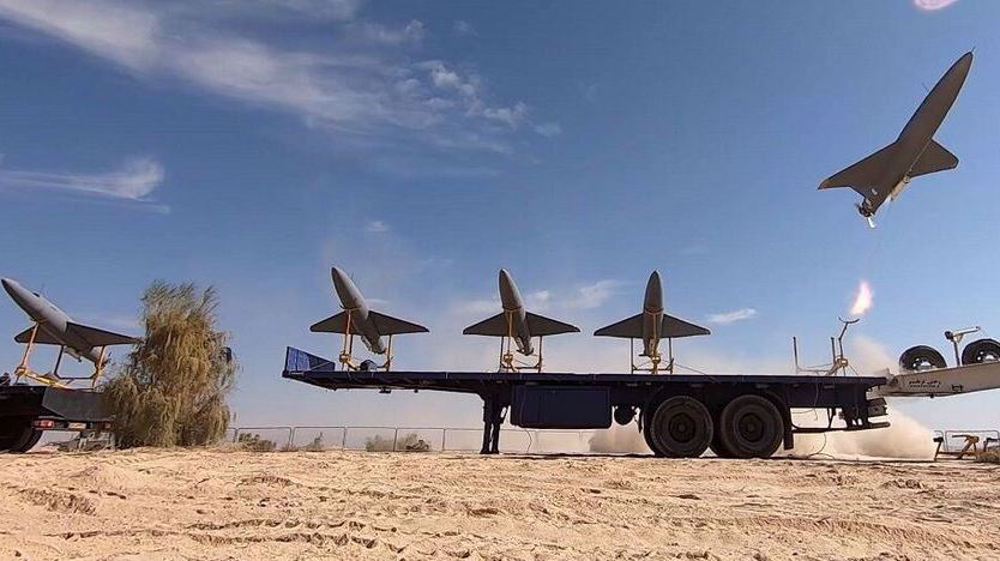
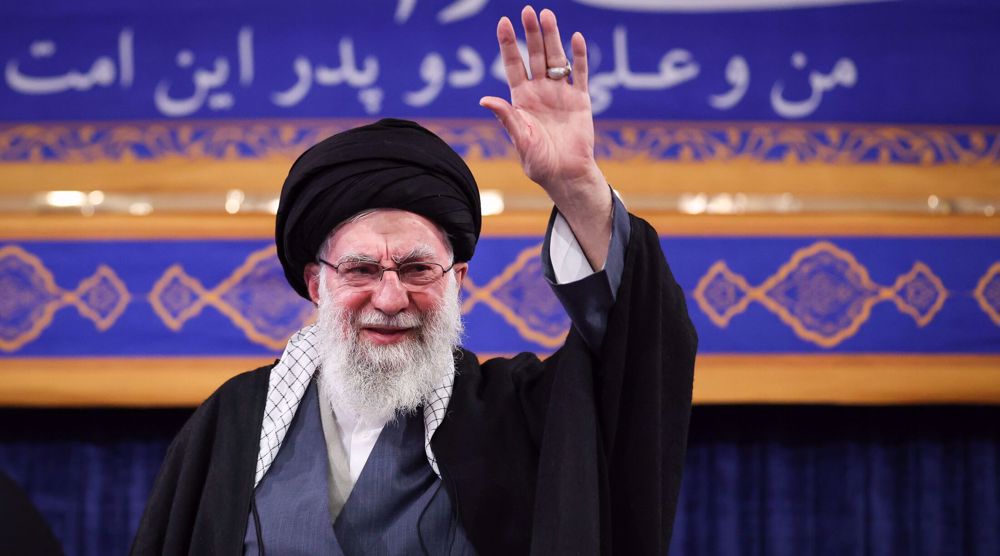
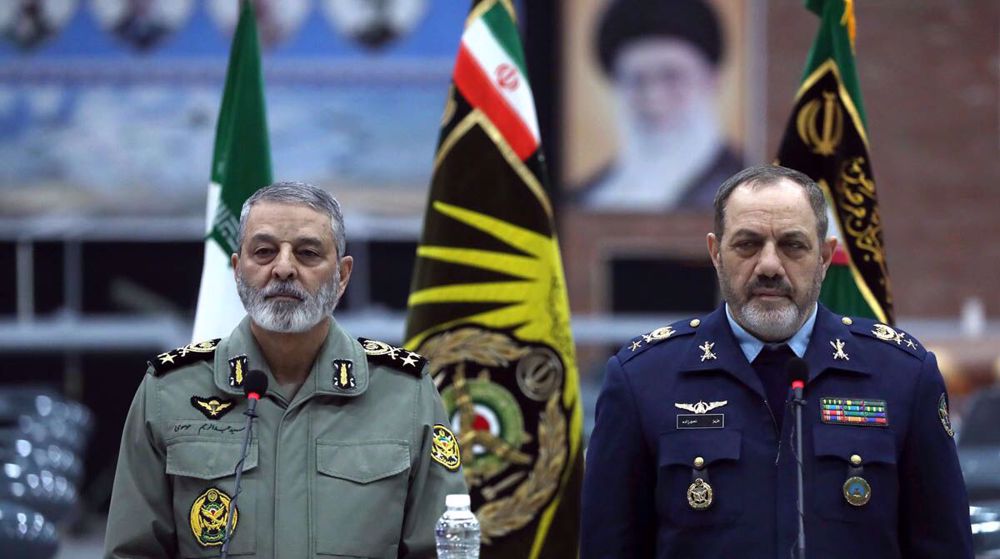




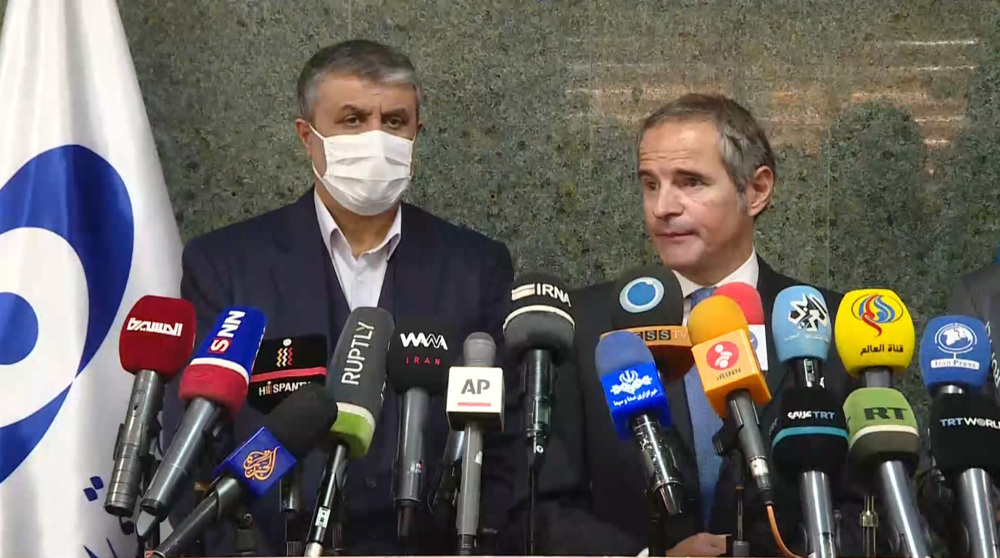
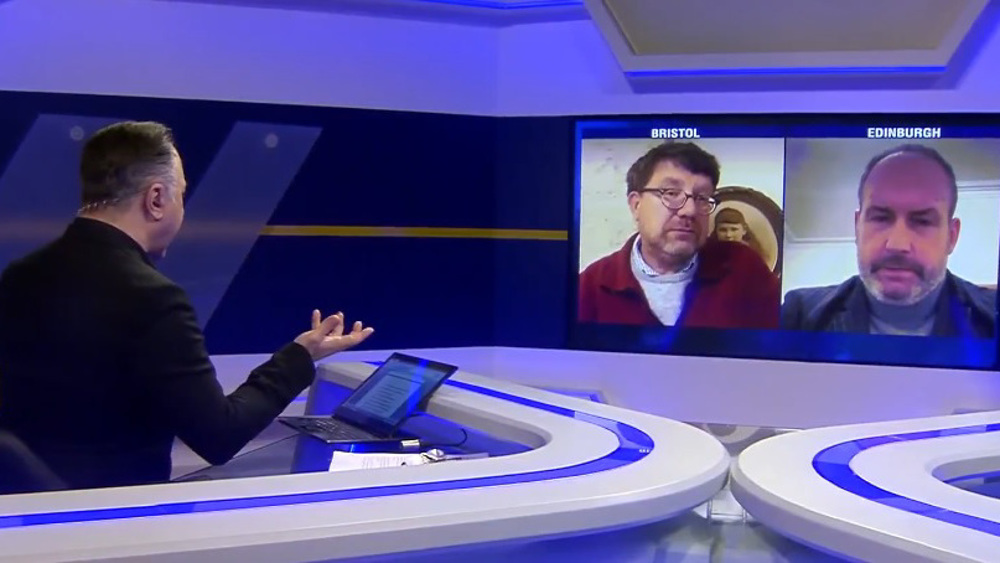
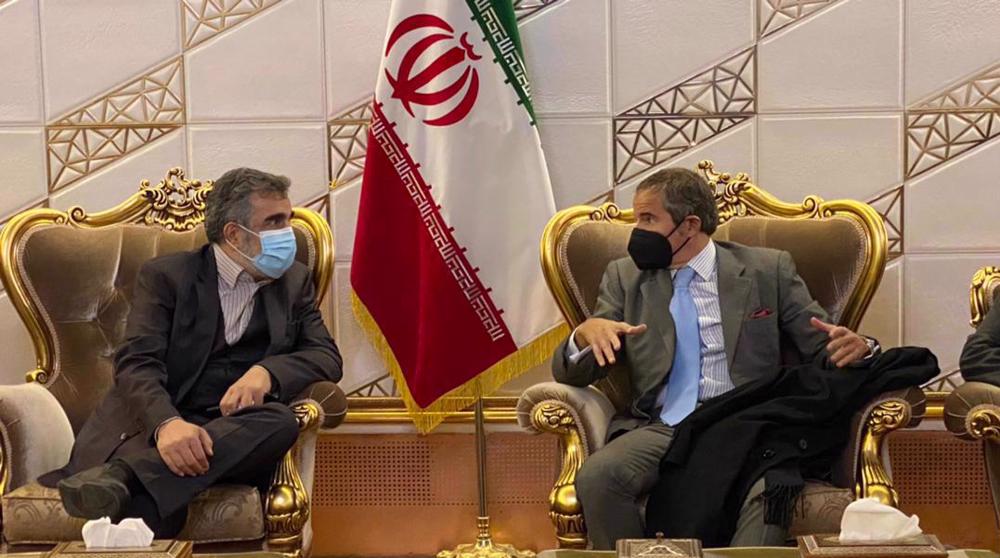
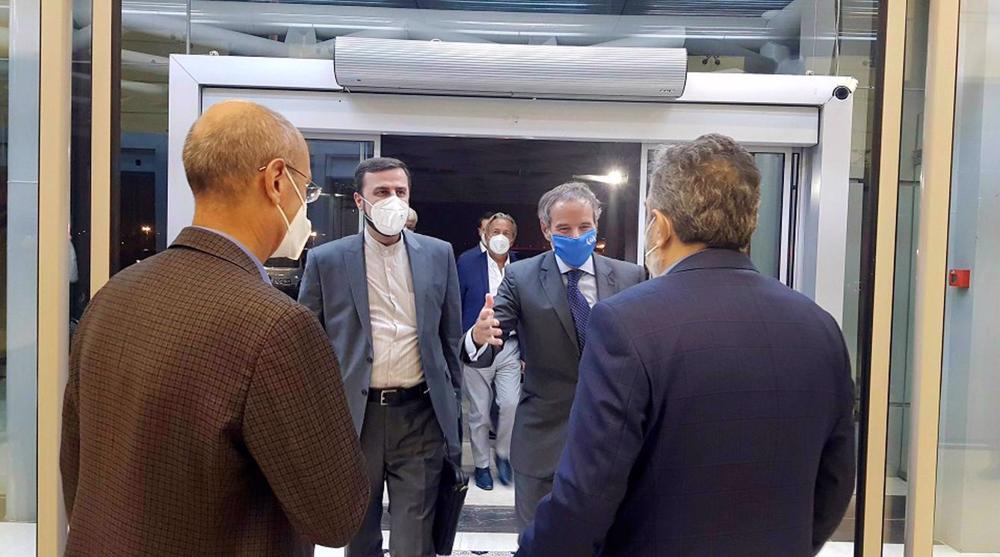
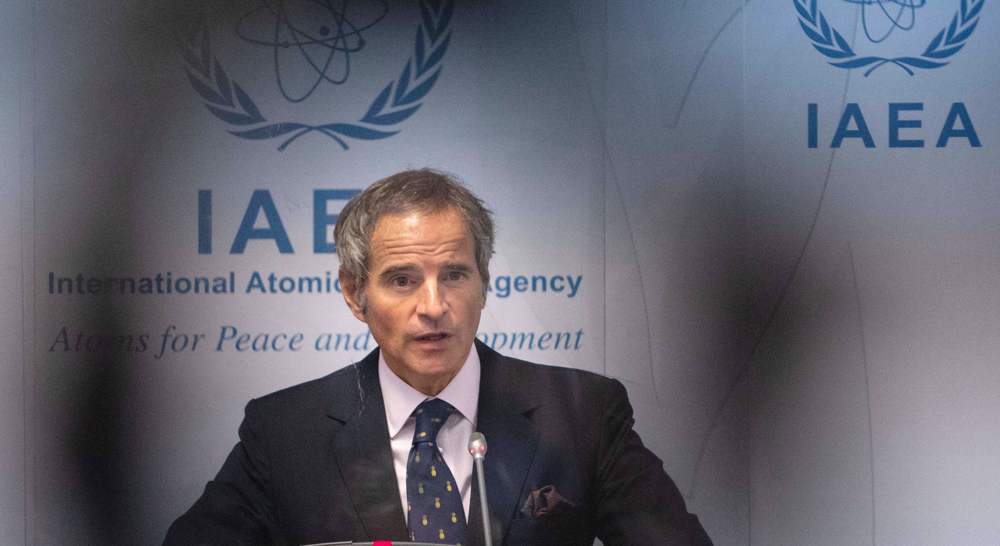
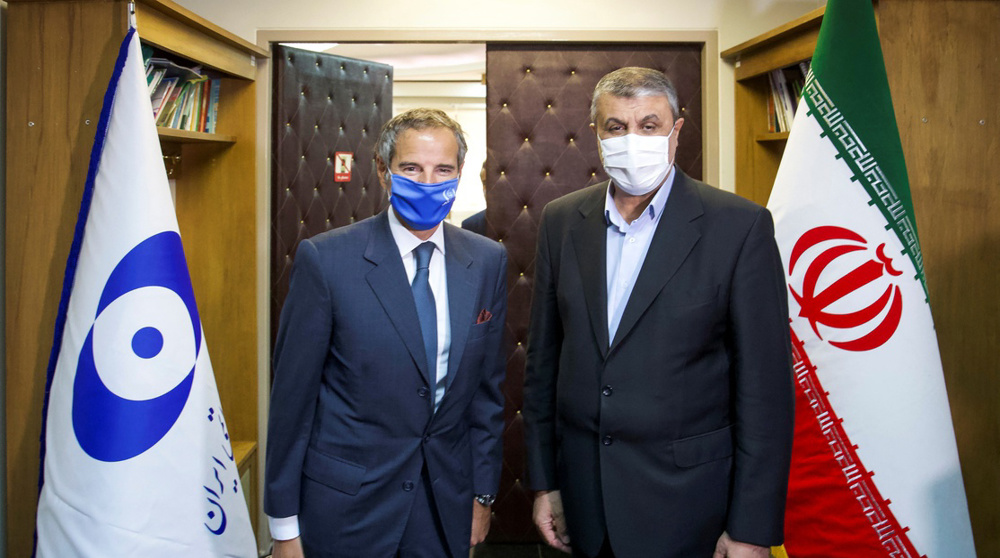
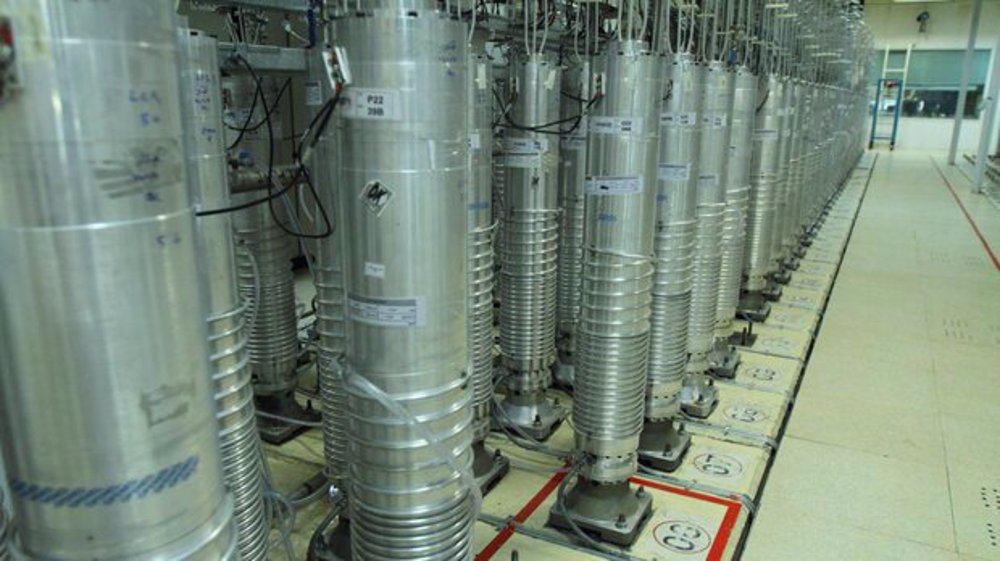
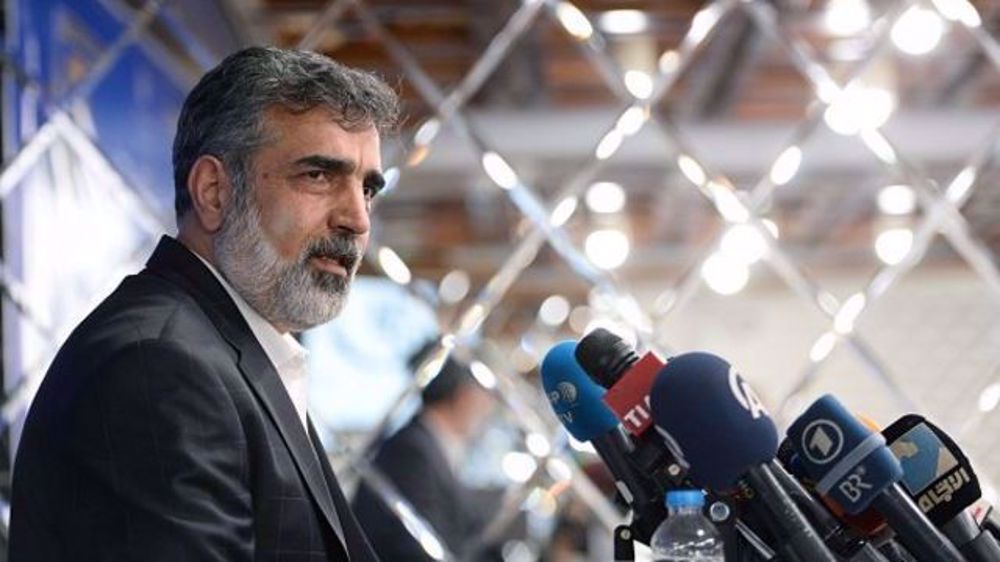
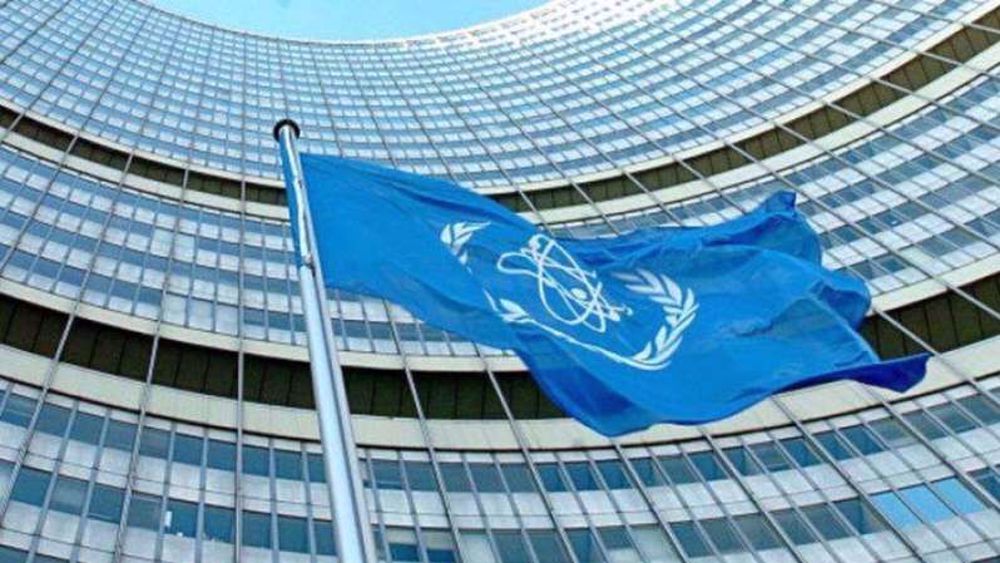

 This makes it easy to access the Press TV website
This makes it easy to access the Press TV website